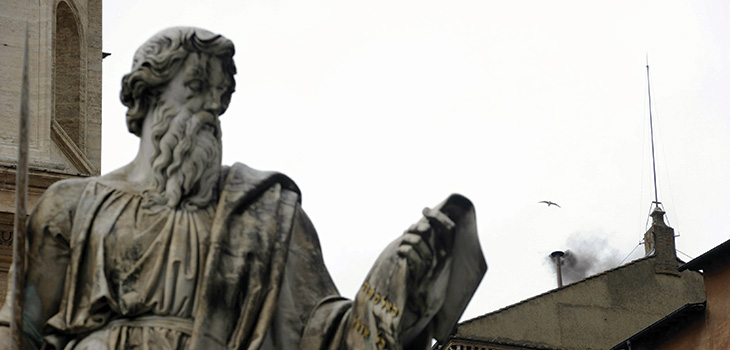
How does the Catholic Church decide who is going to be pope? Most people seem to be aware of the College of Cardinals, which gathers to form a conclave that meets and votes in secret until one of their number has achieved enough votes. What perhaps fewer people know about is the complex laws that govern papal elections, and how they came into being.
The use of cardinals to elect a pope was only codified in 1059 by Pope Nicholas II. Before then, the appointment of popes was haphazard. In 236, a dove landed on the head on the future Fabian II and, according to Eusebius of Caesarea (265-339), ‘thereupon the people, all as if impelled by one divine spirit, with one united and eager voice cried out that he was worthy, and immediately they set him on the episcopal seat’. The Eastern Roman Emperor, Justinian I (527-565), after he









